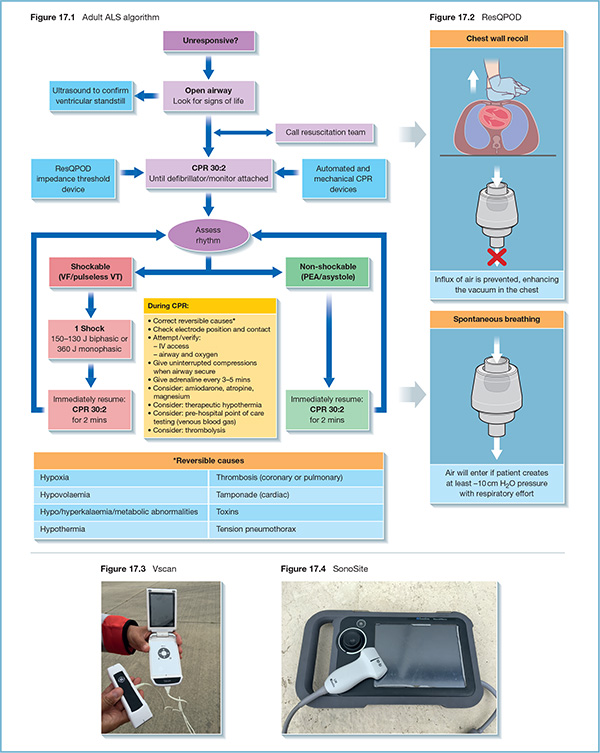17 Despite recent advances in our understanding of resuscitation, survival from out-of-hospital cardiac arrest still remains low. Centres in the UK that have used pre-hospital enhanced care teams to provide a primary cardiac arrest response have shown significant improvements in survival rates. However, currently there are not enough enhanced care teams to meet the demand from cardiac arrest cases in the UK. Several recent advances in resuscitation medicine are being used by enhanced care teams to improve survival from cardiac arrest. The vast majority of out-of-hospital cardiac arrests are managed by ambulance crews for whom the Resuscitation Council’s advanced life support (ALS) algorithm dictates the care provided17.1. However, enhanced care teams are able to supplement ALS protocols with several key interventions (Figure 17.1) which may improve survival and contribute to overall improved management. Technological advances have now made it possible for pocket ultrasound imaging to be utilised in the pre-hospital environment. Several studies have examined the use of ultrasound during cardiac arrest to detect potentially reversible causes. Although none of these studies has shown a survival benefit, if used at the right time by appropriately trained personnel, it can identify reversible causes of cardiac arrest. Indeed, the Resuscitation Council advocates the use of ultrasound when appropriately trained clinicians are available.
Circulation II: medical cardiac arrest

Beyond advanced life support – enhanced cardiac arrest care
Ultrasound
![]()
Stay updated, free articles. Join our Telegram channel

Full access? Get Clinical Tree








